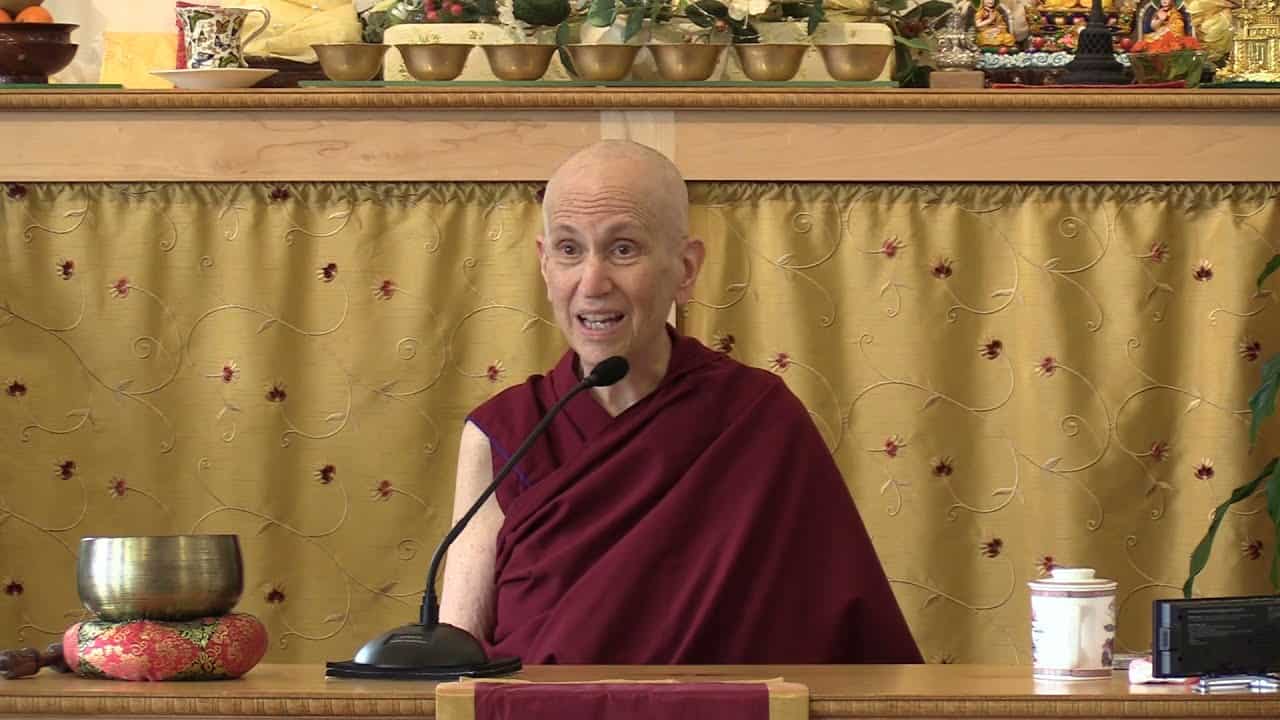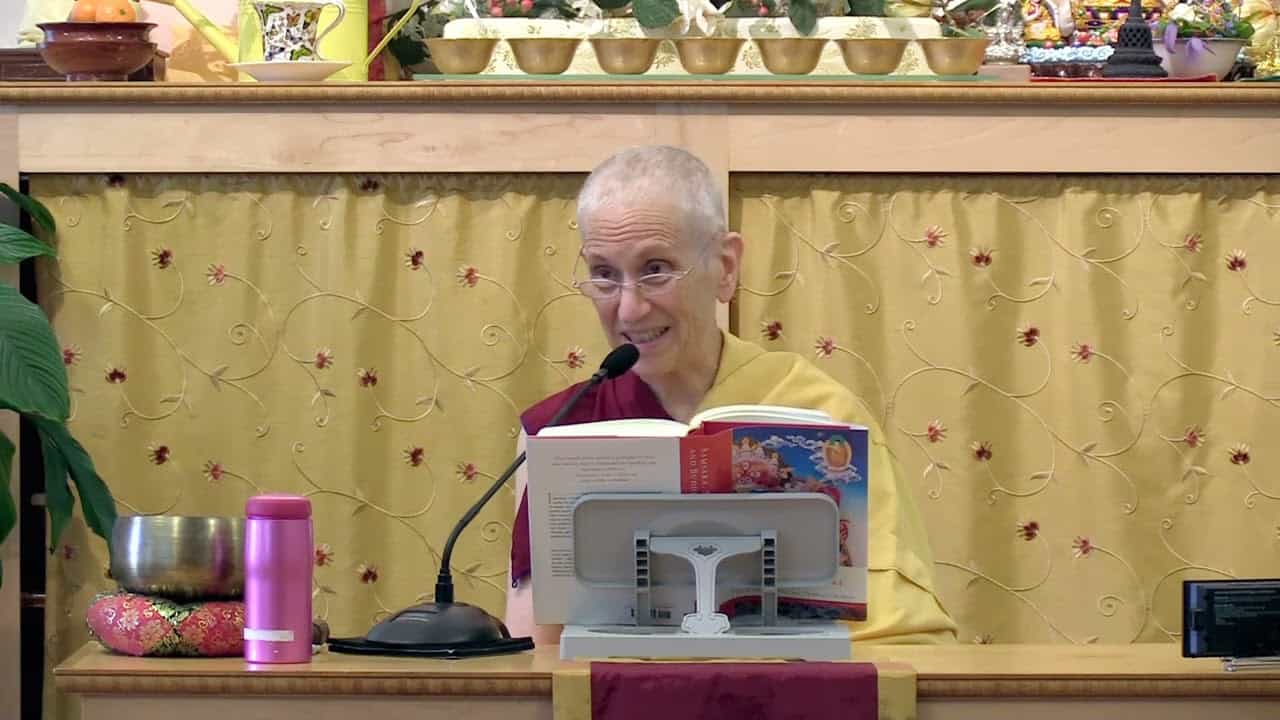Types of duhkha
14 Samsara, Nirvana, and Buddha Nature
Part of an ongoing series of teachings (retreat and Friday) based on the book Samsara, Nirvana, and Buddha Nature, the third volume in The Library of Wisdom and Compassion series by His Holiness the Dalai Lama and Venerable Thubten Chodron.
- Physical or mental pain
- Pleasurable experiences don’t last, turn into discomfort
- Aggregates are the basis for present duhkha and future rebirths
- Reacting with afflictions and creating karma
- Reflecting on experiencing duhkha from beignningless time
- Feeling and primary affliction corresponding to three types of duhkha
- Six disadvantages of cyclic existence
- No security or certainty, never satisfied, die and born repeatedly
- Repeatedly change status from one life to the next
- Experience suffering alone
- Looking at our experiences and wanting to become free
Samsara, Nirvana, and Buddha Nature 14: Types of Duhkha (download)
Contemplation points
- Reflect. On a day to day level, how many experiences of duhkha do you have? Are they more mental or physical?
- Think of an object of attachment for you. Recognize your feelings and how those feelings change when the object changes or your perception of the object changes.
- Think of a situation in which you felt happy. Observe how attachment arises for the pleasant feeling as well as for the people, objects, or situations that seem to cause it.
- Observe the actions you do motivated by attachment. How do they cause problems in this life? How do they create karma for suffering in future lives? Think of the three kinds of rebirth those actions could propel.
- Contemplate that pleasant feelings are unsatisfactory in nature because they do not last and degenerate into pain if we keep doing the act over time. After contemplating the disadvantages of the dukhha of change, observe your attachment subside. As your mind becomes more balanced, enjoy that peace. While this peace is not the tranquility of nirvana, it does give us the knowledge that relinquishing attachment at any level makes the mind more peaceful.
- Contemplate each of the six disadvantages of cyclic existence, making examples of them from your life.
- Contemplate that they originate in ignorance and that it is possible to eliminate ignorance through cultivating the wisdom realizing the emptiness of inherent existence.
- Knowing you have the potential to attain nirvana, generate a strong determination to be free from samsara and attain liberation or full awakening. Use this firm and clear aspiration to inspire your Dharma practice and clarify your priorities in life.
- Observe that the eight worldly concerns become uninteresting when your sights are focused on higher aims such as the true freedom of nirvana or full awakening.
Venerable Thubten Chodron
Venerable Chodron emphasizes the practical application of Buddha’s teachings in our daily lives and is especially skilled at explaining them in ways easily understood and practiced by Westerners. She is well known for her warm, humorous, and lucid teachings. She was ordained as a Buddhist nun in 1977 by Kyabje Ling Rinpoche in Dharamsala, India, and in 1986 she received bhikshuni (full) ordination in Taiwan. Read her full bio.


